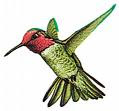 |
| Reed Warbler feeding a Common Cuckoo chick in a nest. Brood parasitism Photograph by Per Harald Olsen |
Most species of cuckoos leave their eggs in the nests of other birds, that's why they are called brood parasites, laying their eggs in the nests of other birds. The cuckoo egg hatches earlier than the host's, and the cuckoo chick grows faster; in most cases the chick evicts the eggs or young of the host species.Cuckoos have evolved various strategies for getting their egg into a host nest. Different species use different strategies based on host defensive strategies. Female cuckoos have evolved secretive and fast laying behaviors, but in some cases, males have been shown to lure host adults away from their nests so that the female can lay her egg in the nest.
(Adapted from Wikipedia)
Listen to David Attenborough giving us some more information about this fascinating species:
http://www.bbc.co.uk/iplayer/episode/b01s6y1h/Tweet_of_the_Day_Cuckoo_Male/
And here you have the transcript in case you want to check some of that information:
Or but a wandering Voice?
Male cuckoos are indeed great wanderers spending their winters in Africa and their summers in Europe. But it's only very recently, thanks to modern technology, that we've been able to confirm this and scientists have been able to follow a number of cuckoos as they migrate south to the dense equatorial forests of Central Africa.
 |
| Male sparrowhawk capturing starling Photograph by Pierre Dalous |
After spending winter in the south, the migratory urge propels the cuckoos northwards and for many of us the return is a welcome sign that spring is well and truly here. "





No comments:
Post a Comment